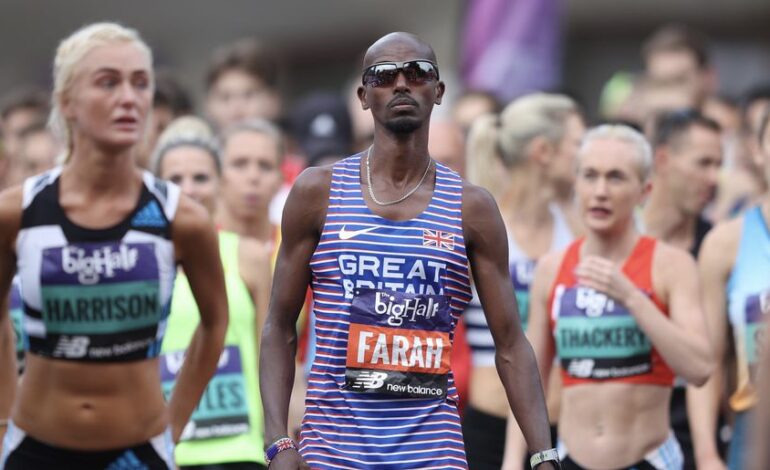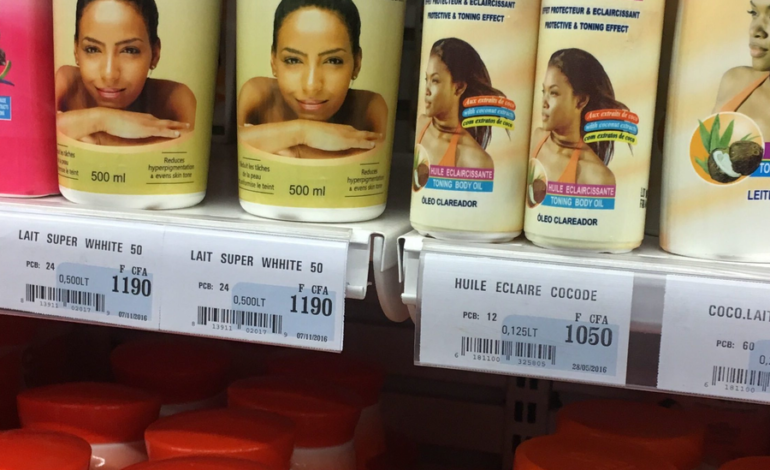
Ekeomah Atuonwu
The Cameroon Dermatology Society reports that approximately 30% of Douala residents and a quarter of schoolgirls utilized skin lightening products in 2019.
This report from 3 years ago and a possible rise in the statistics as well as the hazards involved in the use of these products, formed the government’s opinion to place a ban on its importation and sale.
Cameroon’s Minister of Public Health Manaouda Malachie announced ban of the sale of skin bleaching products on August 19, 2022.
In a statement, the minister claimed that the Central African country has banned the importation, manufacture, and distribution of cosmetic items containing the three bleaching chemicals corticosteroids, hydroquinone, and its derivatives.
He also suspended a drinkable skin whitening product that had become popular in the country, warning that substances contained in the drink could be poisonous.
“Products that are not regulated could cause skin cancer, skin irritation or other health risks”, he warned.
However, the minister said in an interview with a local television channel that he had received threats after banning skin bleaching products.
“You can’t imagine the number of phone calls and threats I’ve received since these press releases came out,” he says.

In the last several months, skin-whitening product use in the Central Africa country has increased, but dermatologists and medical professionals have cautioned that the practice may be harmful.
Skin lightening, whitening, and bleaching are just a few of the many names for the centuries-old process, which also has a variety of cultural origins depending on where it is practiced. However, the trend’s true origins lie in colorism and the reality that lighter skin is frequently linked with attractiveness and better opportunities for job, marriage, and social standing in many countries.
On the other hand, some of the side effects of skin lightening include:
High blood pressure
Fatigue
Light sensitivity
Numbness
Neurologic symptoms, including tremors, memory loss, and irritability
Kidney failure
Lung damage
Greater risk of developing skin cancer
The fair-skinned women on the package make the products with names like “White now” and “Super white” readily recognizable on store shelves.
Numerous of the items have never undergone scientific testing and have harmful concentrations of ingredients that prevent the body from producing melanin, a pigment that is formed in response to sun exposure.
Hydroquinone is one of the compounds, which has been prohibited in the European Union since 2001 due to the possibility of cancer and genetic abnormalities.
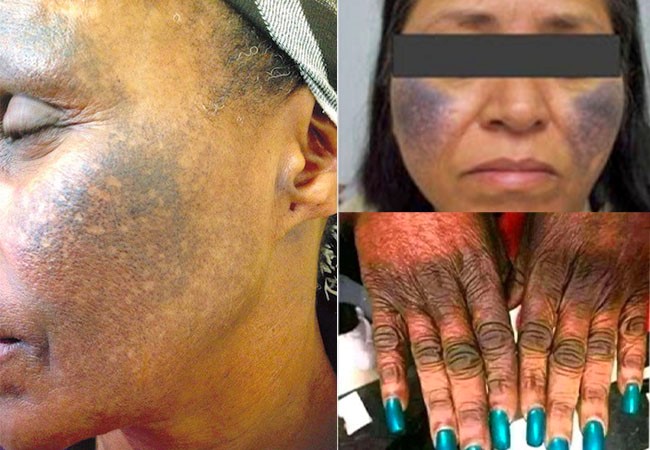
According to a study by Yaounde University, hydroquinone is really one of the ingredients used most frequently in whitening treatments in Cameroon.
The cosmetics are frequently used by both men and women in numerous African, Asian, and Caribbean nations, as well as by people with dark complexion among populations in Europe and North America, according to the World Health Organization.
There are also lotions, pills, and even injections available for skin whitening.
Some of the substances, when ingested, can cause diabetes, obesity, hypertension or kidney or liver failure.
Despite the horror stories, men and women believe they will become more beautiful after using the products.
“Beauty standards promoted by media, advertising and marketing reinforce the bias that lighter skin tone is more desirable than darker skin tone.”
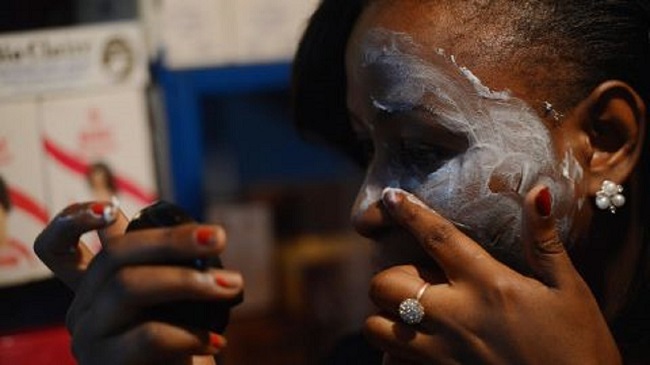
Sociologist Achille Pinghane Yonta of Yaounde University offers blunter analysis of why the creams remain popular.
“There is a desire rooted in our consciences to want to look like Western populations”, he said.
“It’s a very old practice. It’s even said, in some parts of the country, that a light-skinned woman’s dowry is higher than that of a darker woman.”
Considering that the monthly minimum wage in Cameroon is 36,270 CFA (about $53), one can spend up to $40 on these items.
The ability to afford skin lightening products increases with the expansion of disposable income. The availability of high-speed internet, growing trend of online shopping also encourages sales and build the growth of the world market of skin lightening products.
The skin lightening sector is one of the fastest-growing in the world, according to the WHO, which predicted that it will be worth $31.2 billion by 2024. Practicing skin lightening is expensive since one has to maintain the products used.
Since the ban in Cameroon, police have conducted raids, much to the displeasure of industry participants who assert that certain seizures don’t differentiate between the products that the government has banned and those that have not.
AEM correspondent spoke with Oben a young lady in Cameroon who maintains her natural African complexion and she says “skin lightening cuts across status so it is practiced between the rich and the poor.
However, the low income earners uses cheap products which are not dermatologically tested thus causing harm. But the high income earners can afford better products that are of greater quality.”
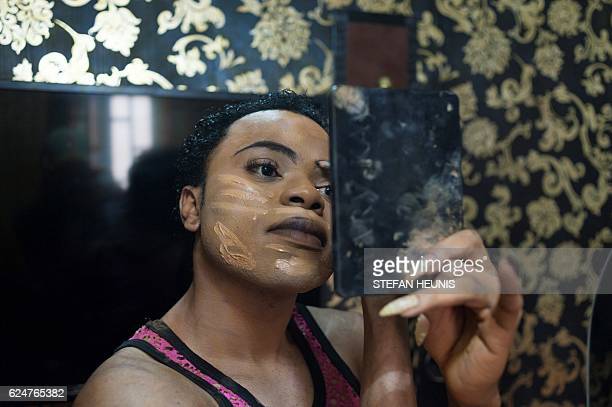
She further explains that it is not popular among the high income earners as they generally more concerned about maintaining their skin color rather than bleaching.
Oben tells us that in her country, she believes skin lightening is practiced due to low self-esteem, illiteracy and lack of awareness. Contrary to opinions that it makes them look attractive to the men, she explains that only an insignificant fraction of men are attracted to women who have their skin bleached.
Oben tells us that more entrepreneurs have delved into the skin lightening business in Cameroon in recent times.
In 2020, Cameroon’s cosmetic and personal care market expanded by 7% and reached 380 billion CFA (around 580 million euros).
Despite the ban, the items already have a black market.
Due to media and advertising portrayals of beauty standards that promote lighter skin tones as superior or more acceptable, skin bleaching solutions are widely used across the African continent.
Due to these risks, several African nations, most recently Rwanda, have started to outlaw skin-lightening cosmetics, primarily creams containing hydroquinone. These nations include Ghana, Côte d’Ivoire, and Rwanda.
A recent report by CNN reveals that Nigeria ranked highest in Africa in the use of Skin lightening products.
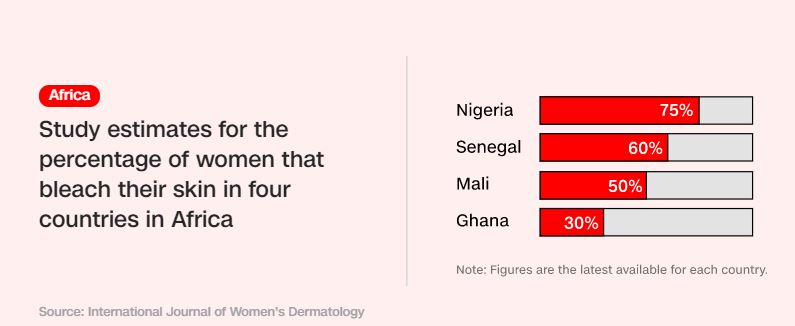
A ban on the sale of skin-lightening products with harmful ingredients was first implemented in South Africa in 1990. Kenya followed suit in 2001, the Ivory Coast in 2015, Uganda in 2016, and Ghana in 2017, but despite these bans, skin lightening products are still widely available in many of these nations, according to Professor Lester Davids from the University of Cape Town.
Following the remarkable success of the global blockbuster movie Black Panther, which featured a predominantly black cast, a growing number of young Africans are taking pride in their complexions, coining hashtags such as #melaninpoppin and #blackgirlmagic to celebrate their dark skin tones.
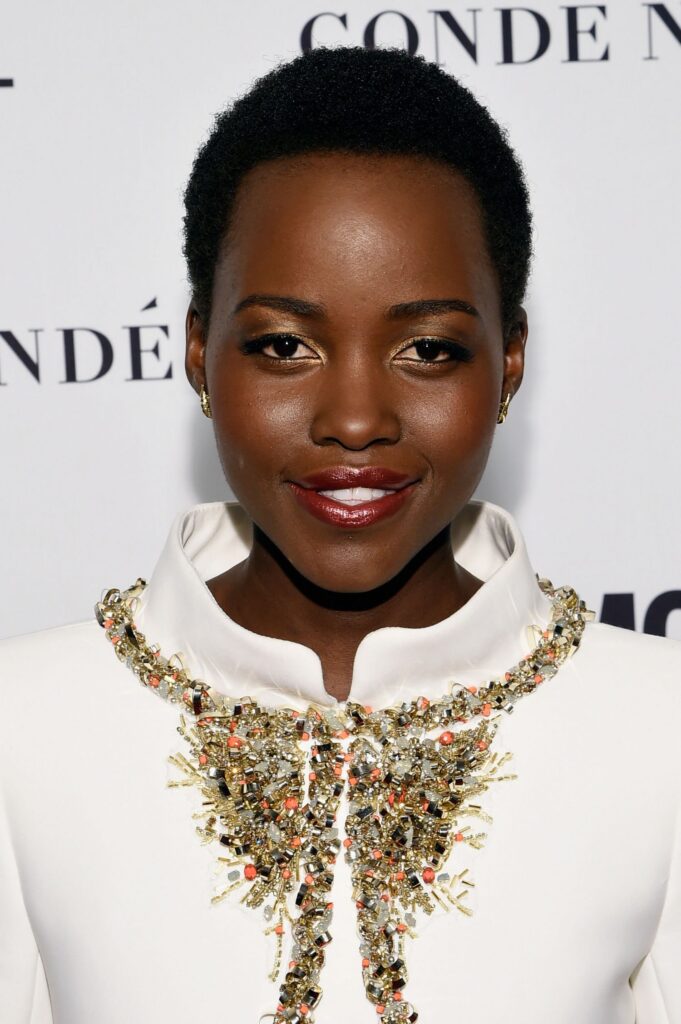
Internationally acclaimed Kenyan actress Lupita Nyong’o, who featured in Black Panther tells Vogue, a US fashion and lifestyle magazine, that “I cannot run away from who I am and my complexion or the larger society, and how they may view that.”
She notes that acceptance and contentment in oneself was key to a successful life.
Unfortunately, even in nations where these products are forbidden, skin bleaching continues to be a problem in Africa. Many academics and medical professionals contend that the idolatry of fair or white skin needs to be eradicated in order to completely eradicate the skin bleaching industry. To put it another way, we need to make sure that dark-skinned women are not only accepted but also treated fairly in all aspects of society.


